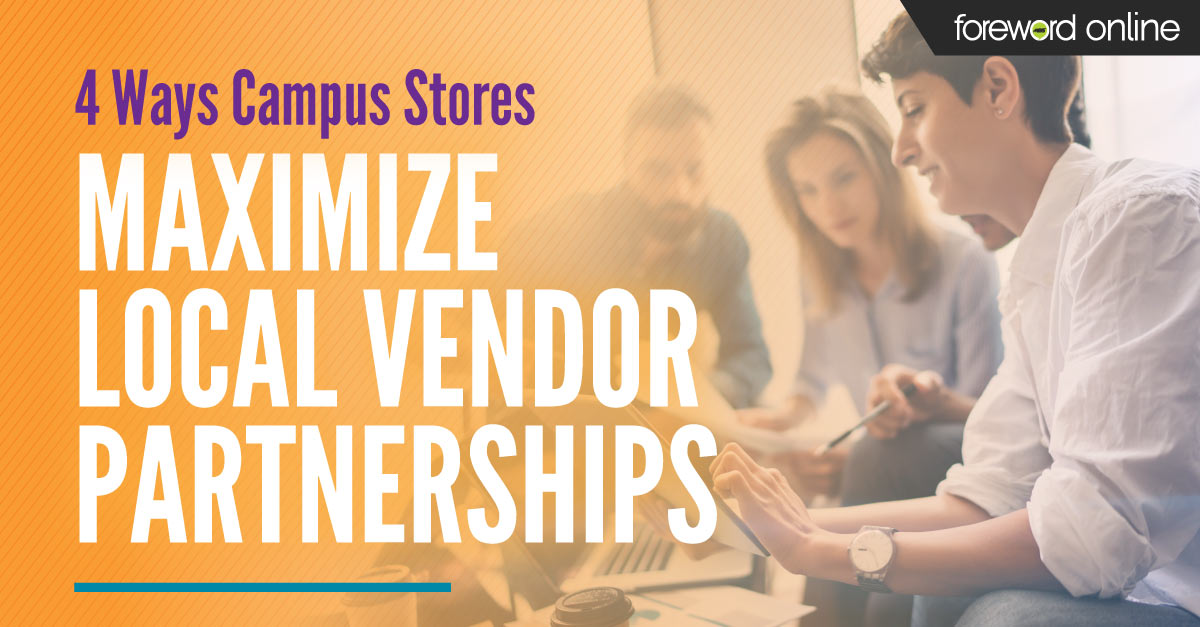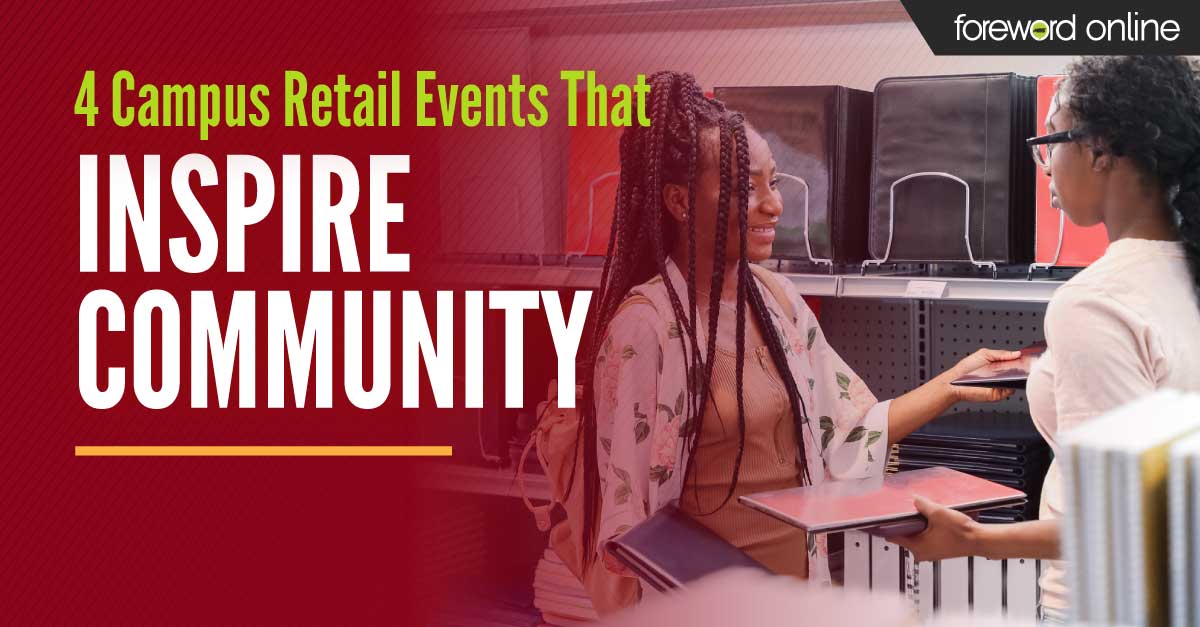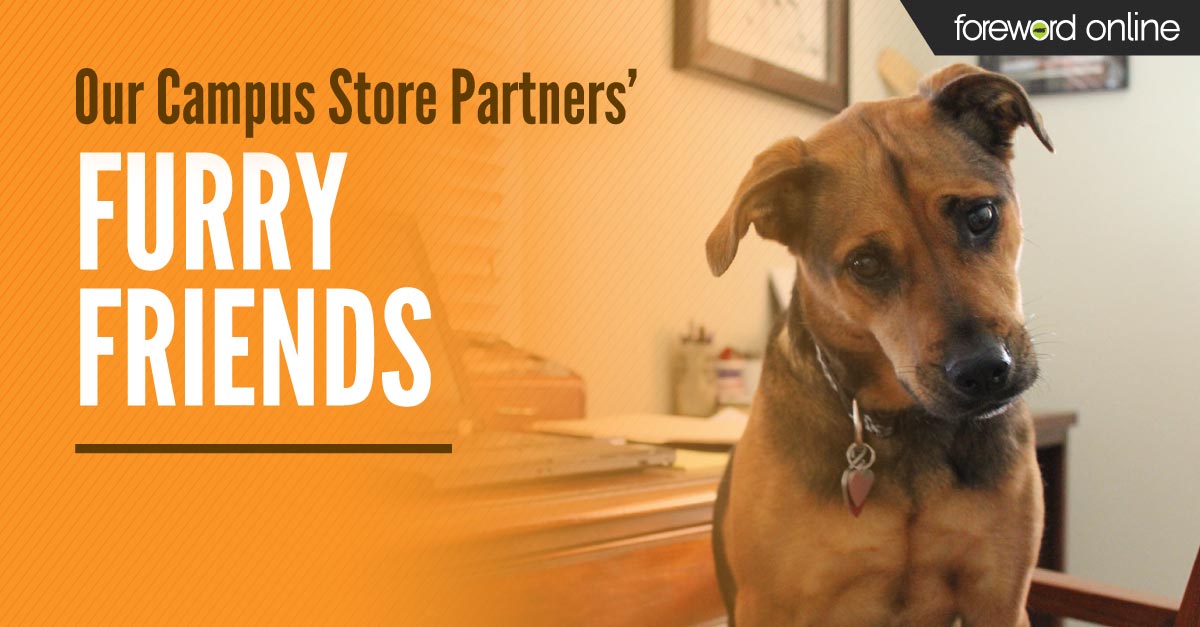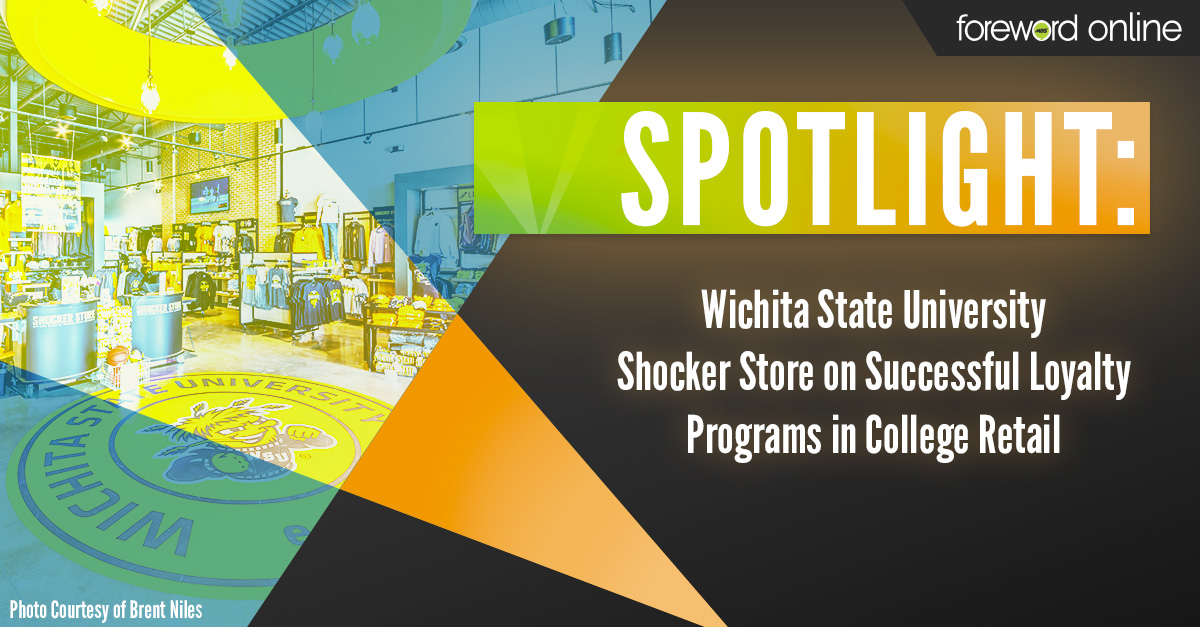Partnerships with local vendors help campus stores provide a retail customer experience that sets them apart from competitors. Produce from local farmers, coffee from a local hang-out or crafts from regional artisans can transform a visit to your store into a shopping experience that inspires word of mouth, repeat visits and customer loyalty. Here’s how four collegiate retailers maximize local vendor partnerships.
1. University of Pittsburgh Bookstore enhances the retail experience with revolving inventory from local artisans
The University of Pittsburgh Book Store’s standalone giftshop, Maggie & Stella’s Cards & Gifts, attracts students, faculty, Pittsburgh denizens and even tourists with eclectic inventory that includes locally-made crafts. One popular item is a button featuring the famed face of Pittsburgh native Andy Warhol.
Buyer and Manager, Meagan Sotirokos, said she draws on her connection with local vendors for ideas about what to stock. Her store’s carefully curated inventory also attracts visits from artisans searching for retail partners.
“I try to reach out to my local Pittsburgh artisans. Also, I have sales reps come in. Sometimes, I have reps that rep many lines,” said Ms. Sotirokos.
In addition to her everyday inventory, Ms. Sotirokos showcases a new offering each month with an event featuring a local vendor presentation. Ms. Sotirokos said hosting local vendors increases the store’s connection to the larger Pittsburgh community. The regular event, called a Sip & See, encourages customers to keep store visits on their calendar.
“I do a monthly event called a Sip & See. We sell gourmet tea and food, so we plan a food and tea tasting every month. We have a vendor come in, feature their product and talk about it. I have customers that come every single month for that.”
Ms. Sotirokos said the most successful vendors have a strong presentation. One month a local beekeeper engaged customers with a fascinating story about the honey-harvesting process. Another vendor demonstrated an exfoliation treatment that prompted impressed onlookers to make purchases.
“I had a woman who sells local honey recently. She had a great event with lots of samples, where she talked about how they get their honey. That was super popular. And I just had a vendor who offered exfoliation treatments. That went well, too. Her product was on the pricier side, about $30, but we still sold several kits.”
2. UNM Bookstore partners with established local brands to create a bustling campus hub
When the University of New Mexico Bookstore built a new campus store location in 1996, it left space for potential vendor partners. That choice turned out to be prescient, according to Associate Director, Lori Callison. It helped UNM Bookstore continue growing amid the rise of eCommerce in the 2010s.
“I think that was some pretty good forethought of the forefathers,” said Ms. Callison. “We’ve continued to grow and create partnerships with different vendors.”
The store partnered with a beloved Albuquerque coffee shop chain, Satellite, and a New Mexico-based organic grocer, La Montañita Co-op. Customers pack the tables at the in-store Satellite daily. Between classes, hungry students stream into the nearby La Montañita GRABnGO for healthy study-snack essentials like organic ramen and locally grown fruit.
The vendors’ brand-names appeal to customers’ city pride, and the steady foot-traffic furthers UNM Bookstore’s reputation as an indispensable campus destination. Ms. Callison said fostering campus relevance has been the store’s top priority with partnerships.
“I think our goal with our partnerships is to be an integral part of campus,” said Ms. Callison. “We are definitely trying to drive traffic into the store. Ultimately, we would like to drive sales as well. But we are creating places that are geared for hanging out.”
3. UCSD Bookstore’s Sunshine Market co-hosts a farmers market that nourishes campus community
The University of California San Diego Bookstore’s Sunshine Market has co-hosted a popular farmers market with the Center for Student Involvement every Tuesday for 14 years. The event draws students, faculty and staff who turn up to sample goods from diverse vendors, according to John Poggemeyer, UCSD Bookstore Sunshine Market Buyer and Manager.
“The market has Mexican food, Brazilian food, Filipino food, African food, crepes, tamales, barbecue, etc. My personal favorite — I go to it every Tuesday morning to get breakfast — is a place called Benedict’s. They serve 10 different kinds of eggs Benedict with everything from traditional Canadian bacon to salmon and sausage and vegetables,” said Mr. Poggemeyer.
Any campus store could learn how to launch a similar event, according to Mr. Poggemeyer. He suggested that managers or directors go to their local farmers markets and establish connections with the vendors. Store associates can also attend training seminars about farmers markets. The UCSD vendors pay a 9 percent commission on sales, he said. But it’s possible to charge more.
“Just go to local farmers market and get the lay of the land and the feel. Find out what vendors ae paying to be a part of the market. For example, another school in our area actually charges 17.5 percent commission, but they provide parking. My farmers market vendors, especially the food vendors, pay for parking on a weekly basis. It’s about $27. There are also farmers market training seminars. At the seminars, you hear from other farmers market operators. They share tips on how to be successful. It is really and one-and-done type thing. I attended one of those a couple of years ago and found it very helpful.”
4. UC Davis Stores foster student trust with an event featuring donations from local vendors
The University of California Davis Stores hosts a popular de-stress event during finals each term called Relax & Restore. Every afternoon during the five days of exams, the bookstore offers a free stress-busting activity on the quadrangle.
For its first Relax & Restore event, the store partnered with local businesses who donated goods or services for activities. One brought trained therapy animals to interact with the students. Another, the store’s aromatherapy vendor, donated essential oils for visitors to sample.
Partnering with local vendors helped UC Davis Stores keep costs down and emphasize a student-focused mission, according to Associate Director of Finance, Tracy Roman. UC Davis Stores wanted the event to inspire student trust with a message about its interest in students’ well-being.
“It’s a new message. I don’t think there’s much that the college bookstores do in general that isn’t tied to a promotion. We were very careful to ensure that all we said was, ‘We’re here to support you.’”
When Ms. Roman and other organizers presented the idea for Relax & Restore to the marketing department, some associates expressed concern.
“A couple of associates who were former students said, ‘People are not going to understand that this is coming from the bookstore, because that’s not what we think about when we think about the bookstore,’” said Ms. Roman.
To reinforce the wellness-centered message, the store avoided offerings that might suggest a profit-driven agenda.
“[We] worked really hard to make sure it wasn’t tied to any promotion but just tied to the store,” said Ms. Roman. “We used all our store banners and tablecloths. It was all store employees working the event. The student employees walked all over campus, passing out free scantron forms for the tests and telling people about the event.”
A model for successful local vendor partnerships
These stores are excellent role models for campus stores interested in exploring local vendors. Their partnerships successfully boost customer relevance, increase loyalty and further consolidate campus relevance. With the help of local vendors, they create a singular shopping experience that brings customers back.






